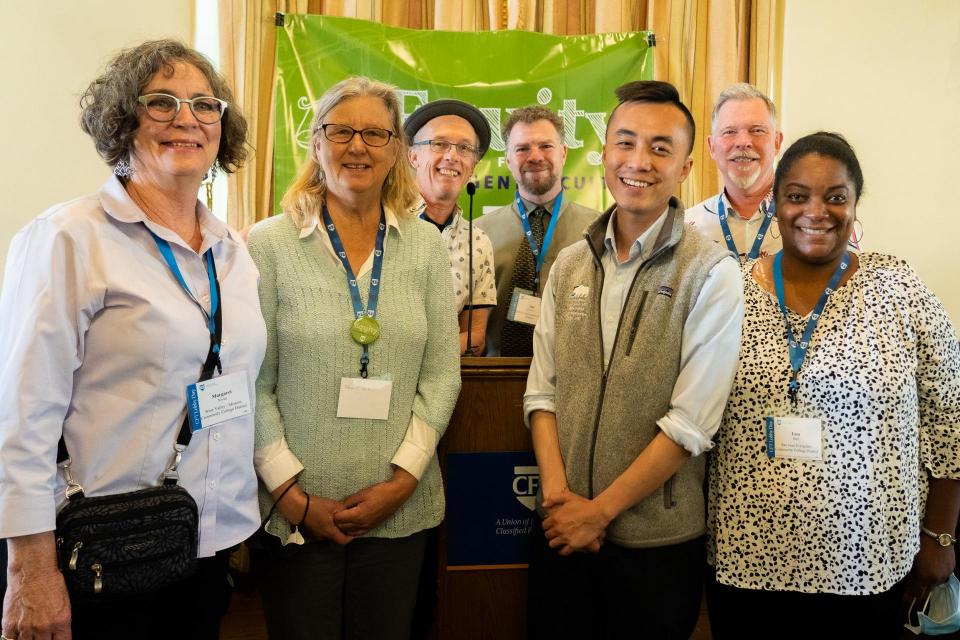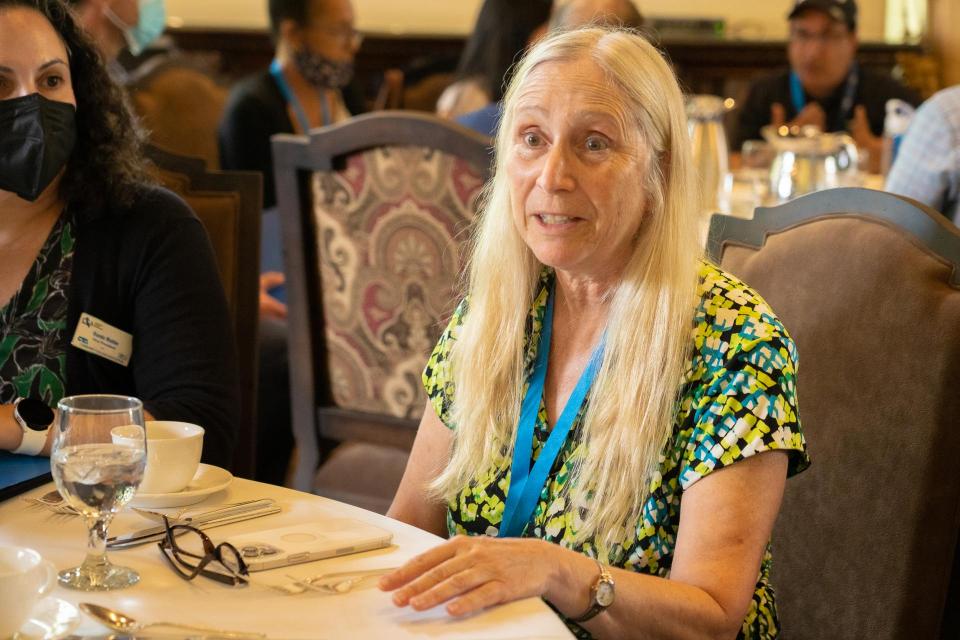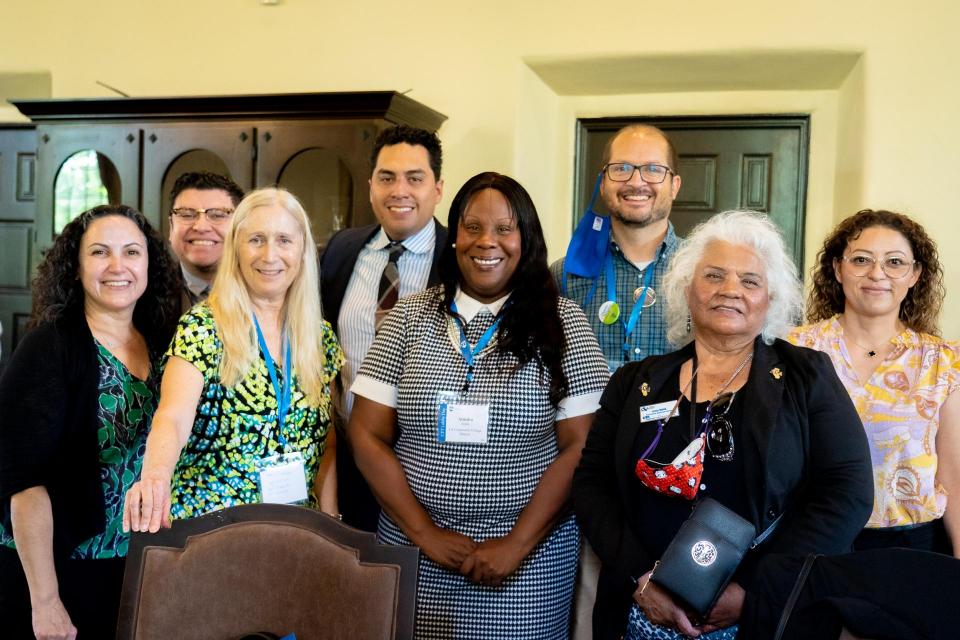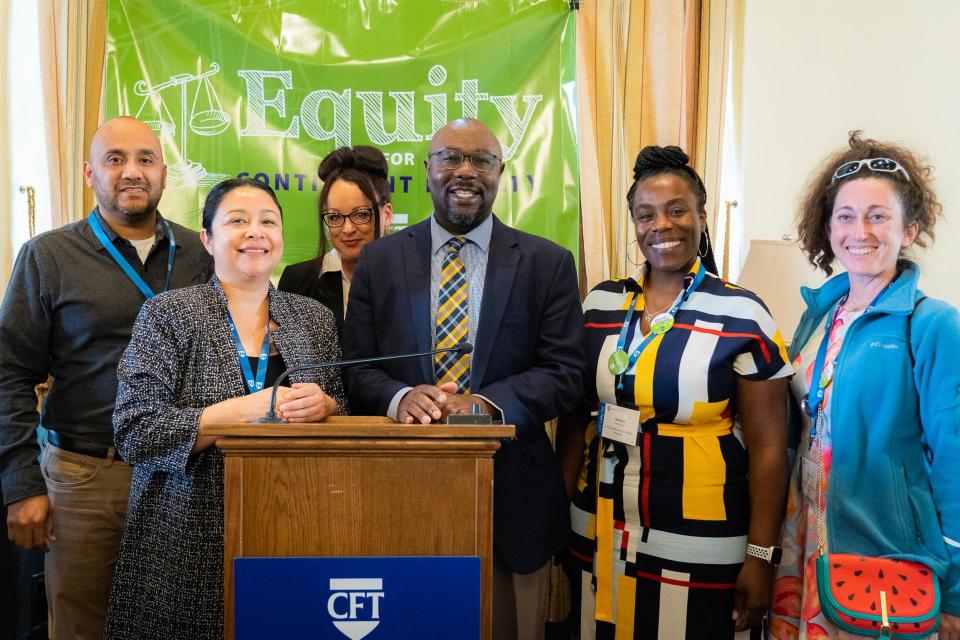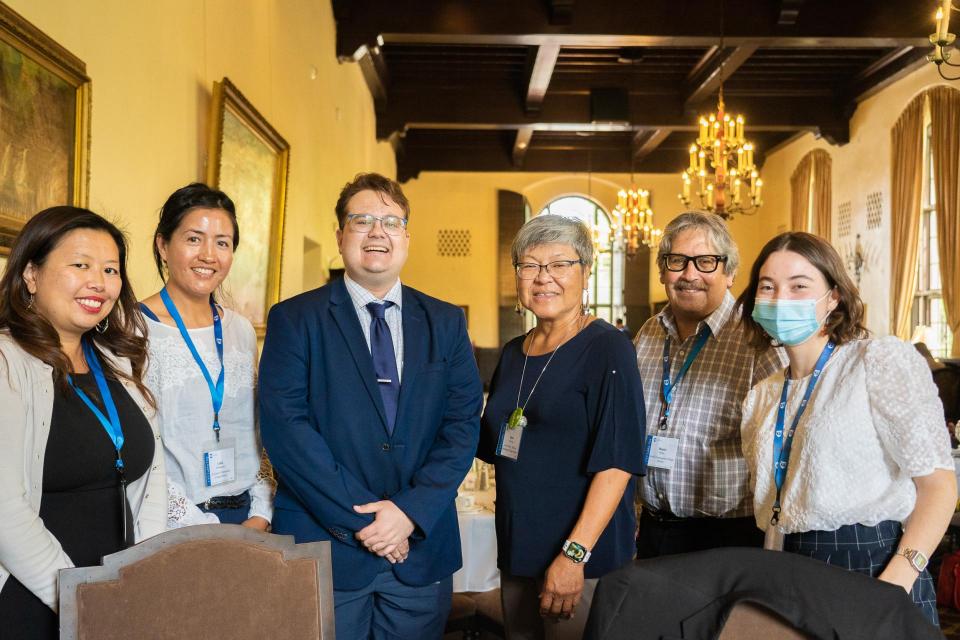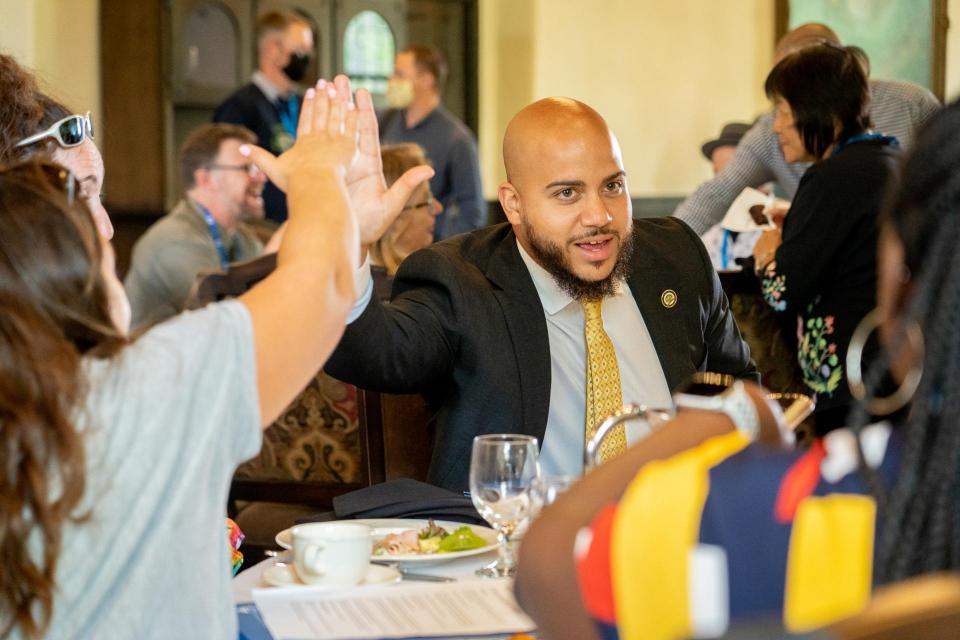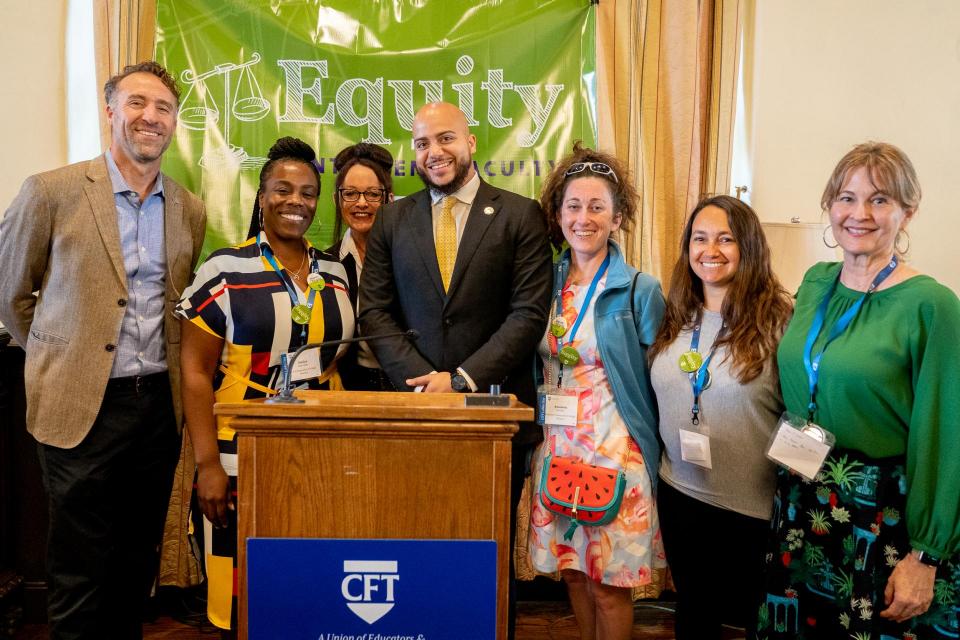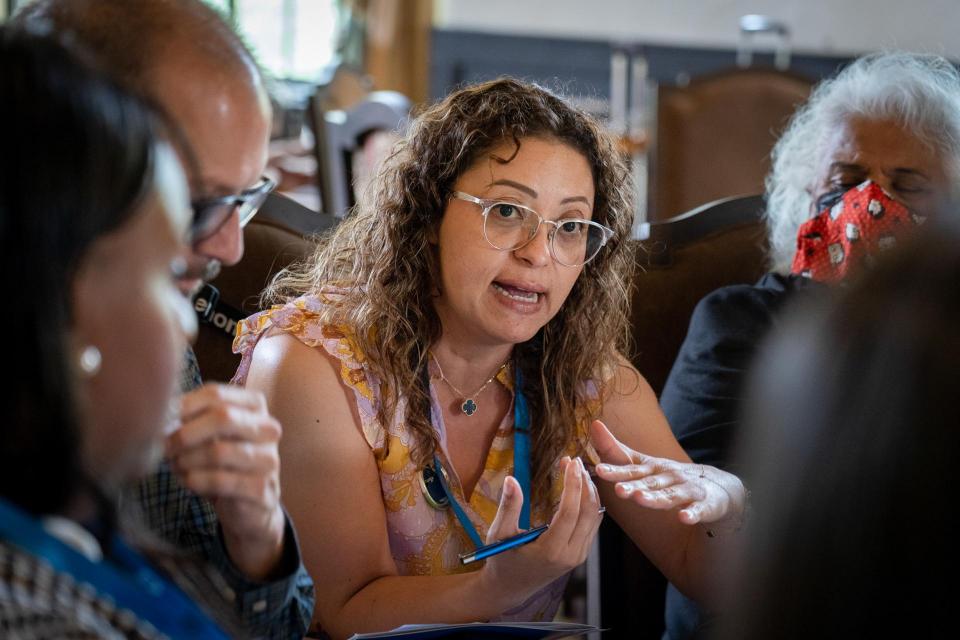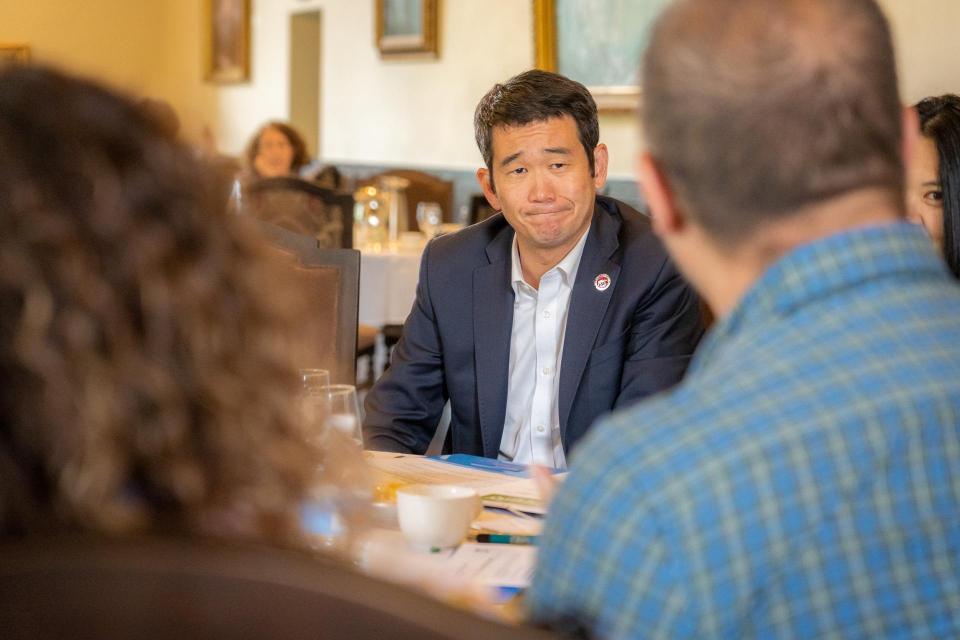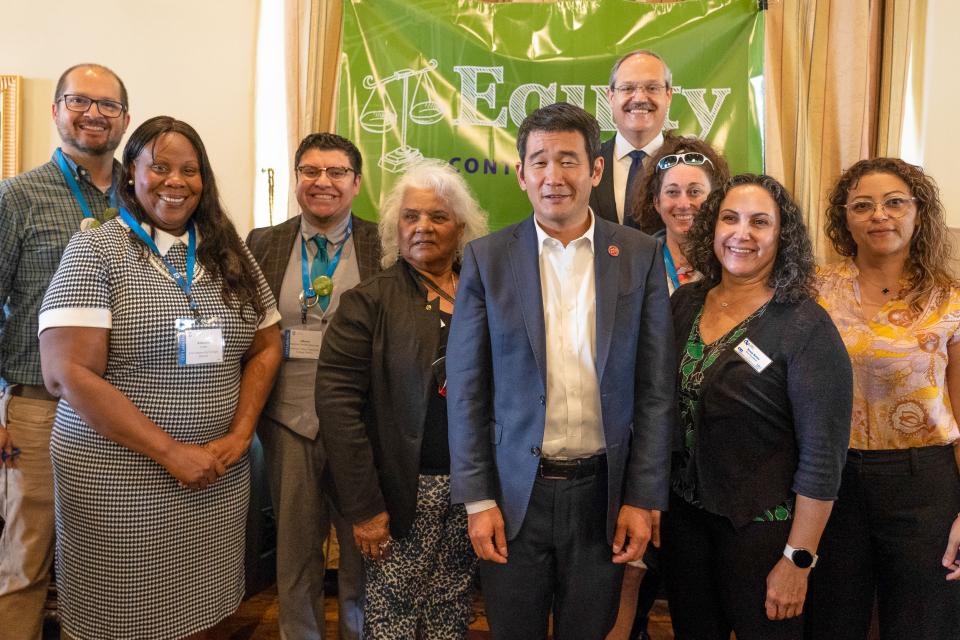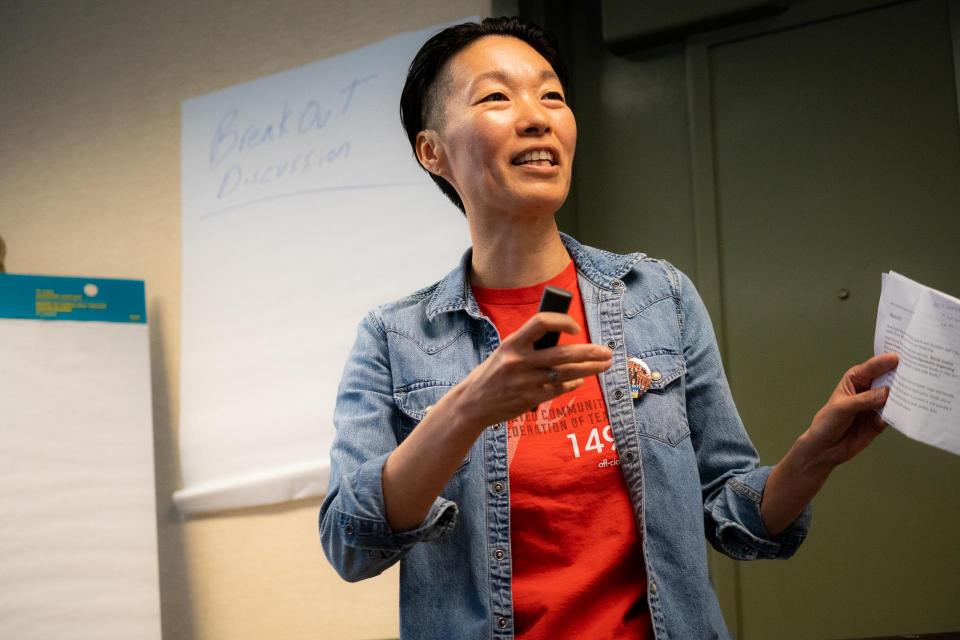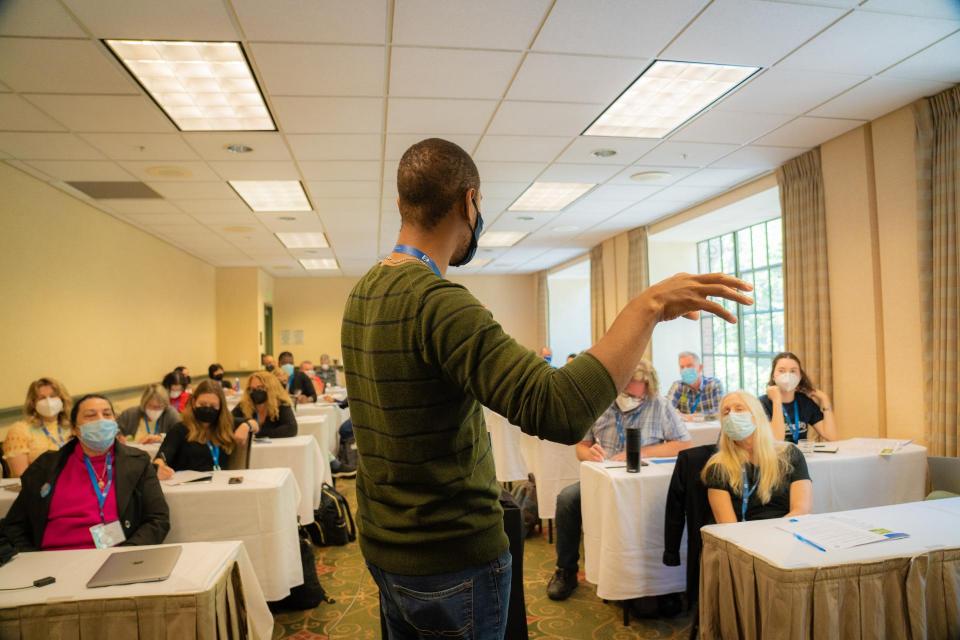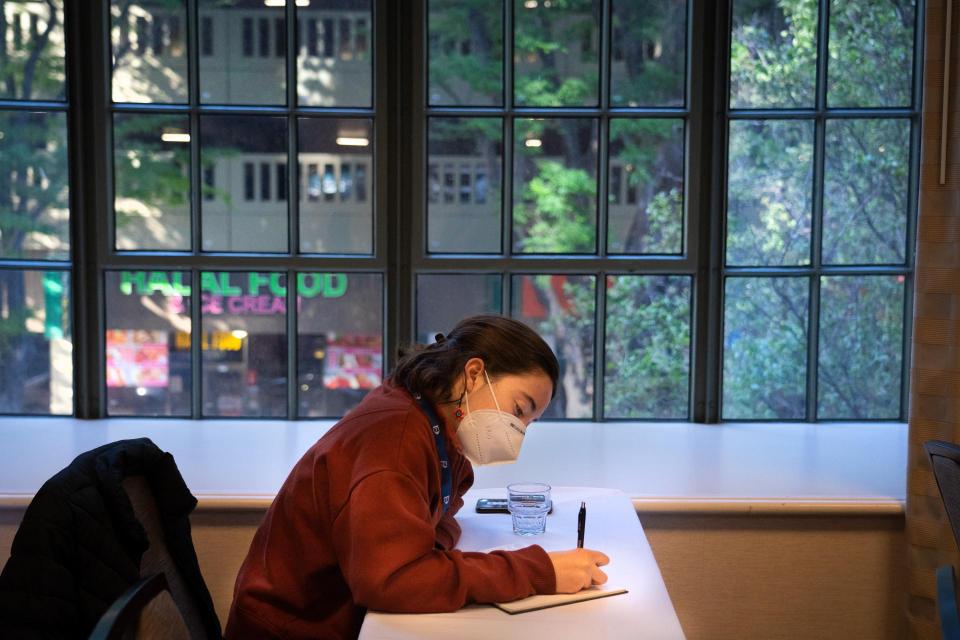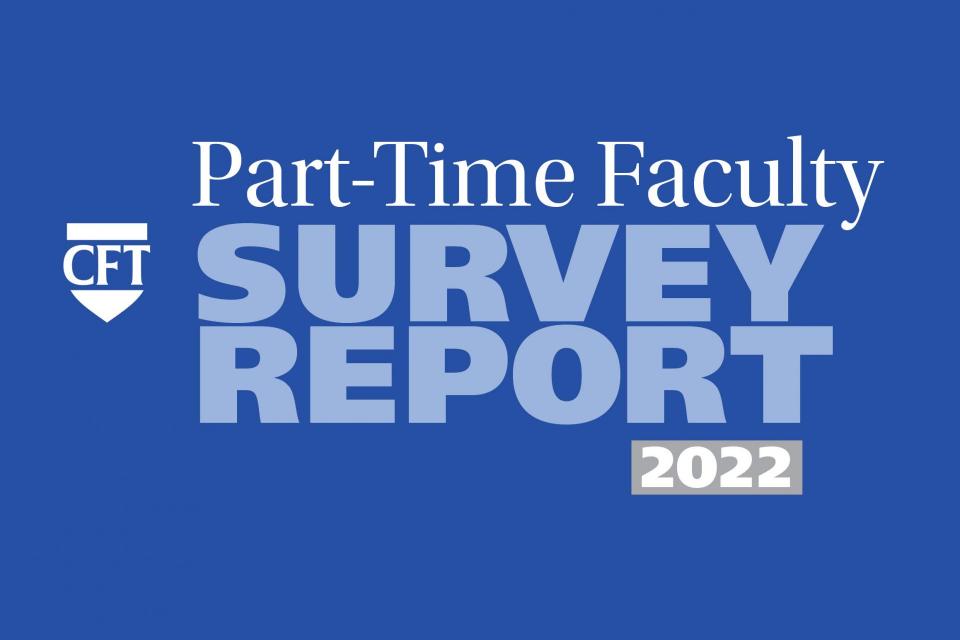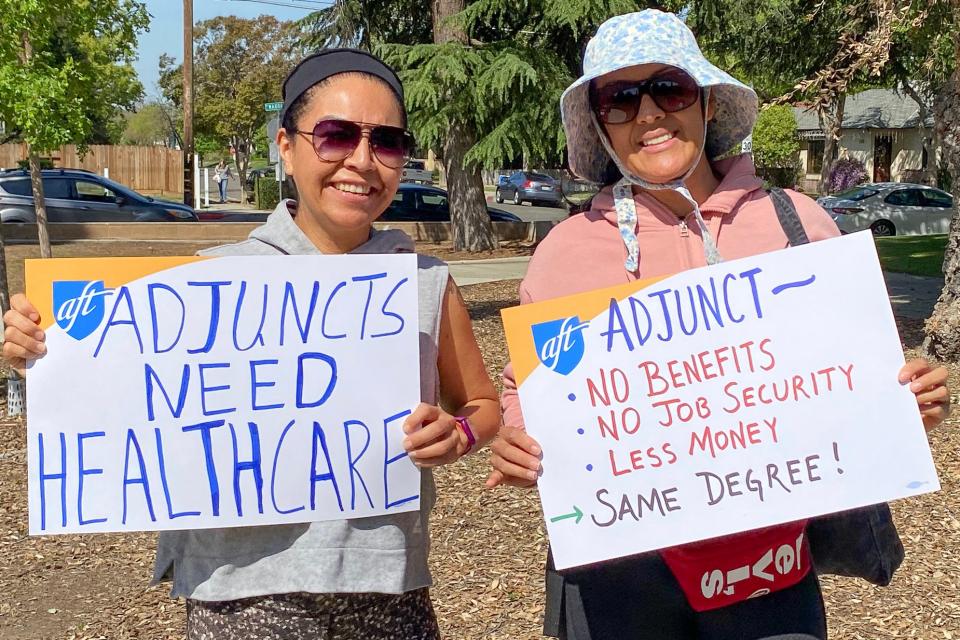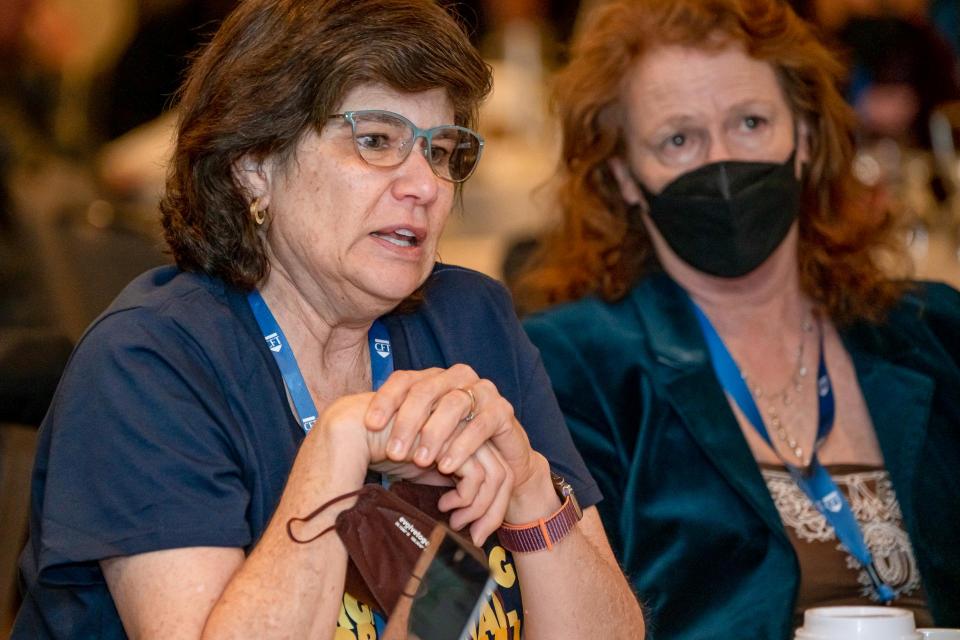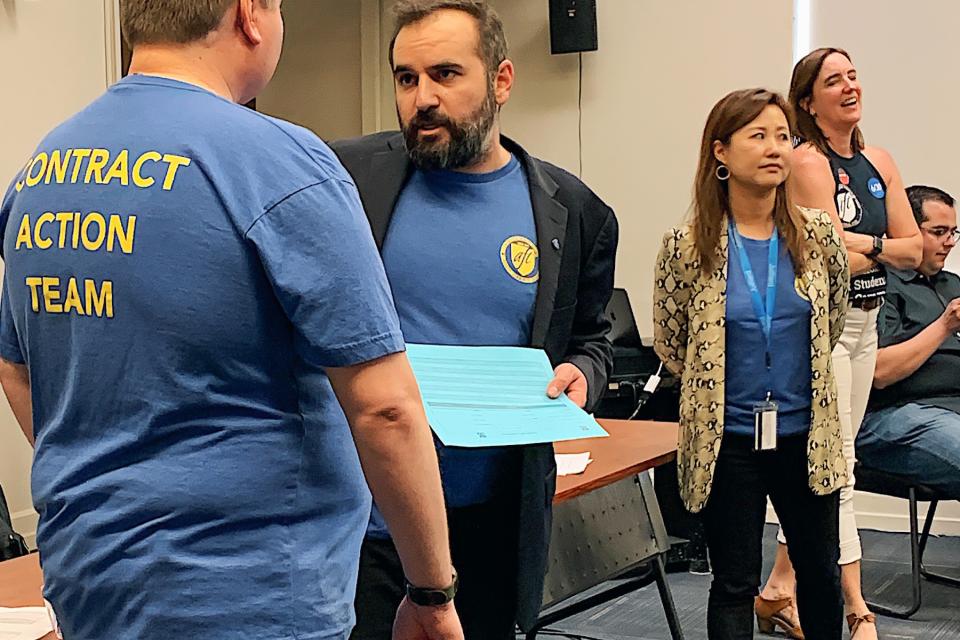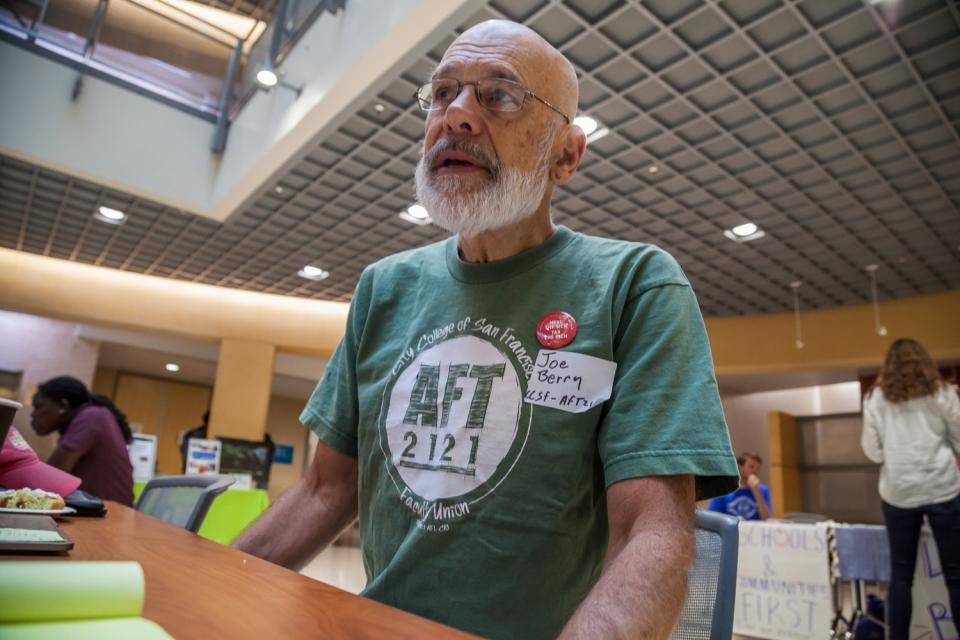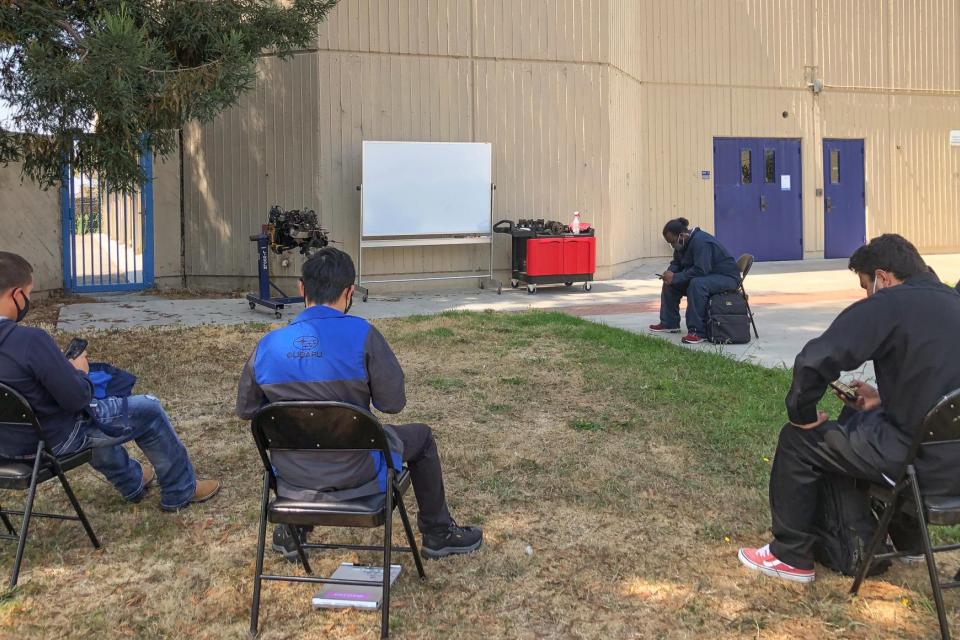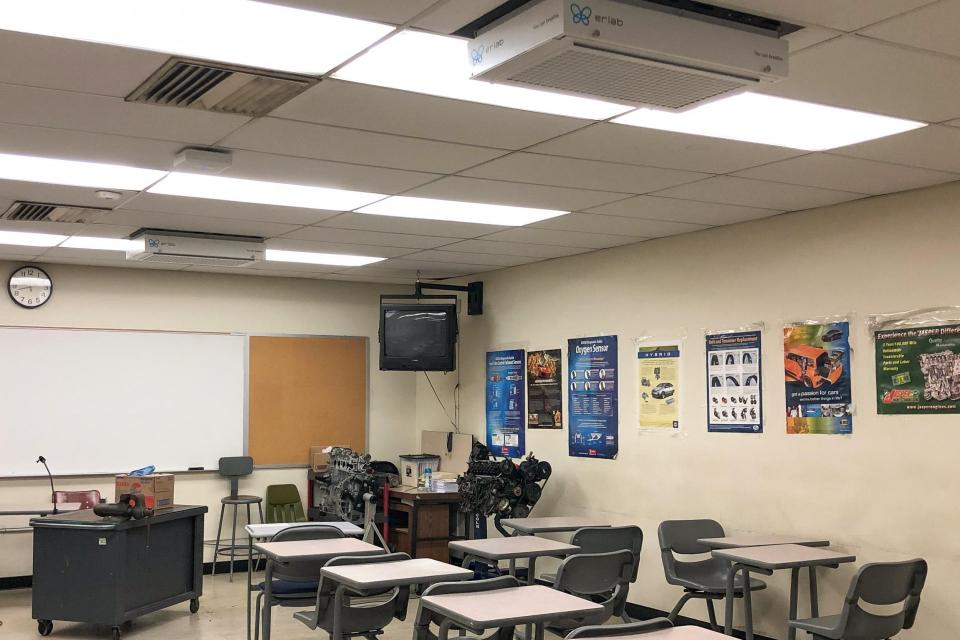Community College Articles
Community College
News and stories of interest for full-time and part-time faculty teaching in the community colleges.
FAQ: Part-time faculty healthcare, the state budget, and collective bargaining
Quick answers to common questions
Updated July 1, 2022
About half of the California community college districts offer healthcare benefits for part-time faculty; the quality of the benefits is wide ranging with some offering the same benefits package to full- and part-time faculty and some offering very modest stipends to help cover the cost of insurance.
Part-timers and allies lobby legislators for healthcare, pay parity
PHOTO GALLERY
Students and full-time faculty join forces with part-time faculty
From the Bay Area to San Diego, and from the Central Valley to the Mojave Desert, part-time community college faculty, along with full-time faculty and student allies, gathered at Sacramento’s famed Sutter Club on Monday morning, May 1, to go forth and make California legislators aware of the critical need for part-time faculty healthcare and pay parity.
Part-Time Faculty Conference empowers through learning
PHOTO GALLERY
Workshops focus on bargaining, lobbying, organizing, diversity, communications
When it comes to union work, power and knowledge work hand in hand. Union is not simply about expressing demands, speaking truth to power, and being resolute in the face of adversity. It’s about making connections, sharing truths, building solidarity, empowering, and speaking to be heard.
Developing the knowledge to do these things and putting the power of that knowledge to use was core to the workshops at the CFT Part-Time Faculty Conference held May 1-2 in Sacramento.
Groundbreaking CFT survey calls out healthcare crisis among part-time faculty
Critical insights into part-time faculty in community colleges statewide
The results of CFT’s groundbreaking statewide survey of part-time faculty offer critical insights into the daily, personal, and structural challenges that part-time and contingent faculty experience when it comes to healthcare.
A “red letter year” for CFT legislation in support of contingent faculty
Healthcare insurance, teaching load, rehire rights, and parity
COVID and the subsequent student enrollment drop during the last two semesters have placed great burdens on contingent faculty, from scrambling to teach remotely to negotiating personal and family challenges to facing reduced assignments and a loss of healthcare benefits.
Continued enrollment woes create challenges for part-time faculty
Local unions finding solutions in pandemic-driven tough times
While California is showing strong signs of emerging from an economy ravaged by the pandemic, the community colleges are still reeling from the impact, most strongly demonstrated in the sharp decline in student enrollment. This has led to tough situations for many adjuncts, and for the local unions representing them.
HELU Winter Summit unites efforts across unions
Promotes socio-economic and racial justice in higher education
HELU, or Higher Education Labor United, a cross-union and cross-sector coalition, held its Winter Summit virtually on February 23-27, pushing forward with the larger goals of reclaiming the promise of higher education, and promoting socio-economic and racial justice embodied by the New Deal for Higher Education campaign and Scholars for a New Deal in Higher Education.
New AFT report shows pandemic wreaked havoc on nation’s adjunct faculty
Transition to remote learning, impact of virus lead to declines in job security, increased reliance on public assistance
WASHINGTON — A new national adjunct faculty survey from the AFT underlines the brutal economic reality faced by millions of contingent and adjunct faculty at the nation’s colleges and universities — and illustrates how the pandemic further eroded job security and bolstered the need for public help.
Part-time faculty step up to win the healthcare they deserve
Dozens of faculty testify before state legislative committees
Dozens of CFT members testified this week in front of two different budget subcommittees of the California Legislature to urge our elected leaders in Sacramento to support Governor Newsom’s $200 million proposal in the state budget to fund healthcare for part-time faculty in California’s community colleges.
Following the launch of CFT’s campaign for part-time faculty healthcare last fall and a successful letter campaign, the governor included the $200 million in his January budget proposal.
What does gratitude look like? Find out from three members deep in student debt
How AFT’s legal victory with the Public Service Loan Forgiveness program will change lives
In 2018, Jessica Saint-Paul, who has a doctorate in medical science and teaches public health and health occupation courses at Southwest and Trade Tech colleges, attended a benefits conference put on by her local, the Los Angeles College Faculty Guild. They covered Public Service Loan Forgiveness, a federal program that promised if you worked in public service for 10 years and made 120 payments, the remainder of your loan would be forgiven.
Work with formerly incarcerated, homeless students lands staff top honors
California Community Colleges honor two outstanding CFT members
Each year the California Community Colleges recognizes five classified employees for their leadership, commitment and ethics. The 2021 honorees include two dynamic and talented CFT members in the Los Angeles area.
Part-time faculty face loss of work, health benefits in COVID times
Locals negotiate vaccine stipends, reduced class minimums, retention of health benefits
As the COVID pandemic stretches into the fall, community college adjuncts have been hit especially hard by the decline in student enrollment, limited support services, and inadequate or even non-existent access to healthcare. The loss of work, loss of insurance benefits, and even the breakdown of personally financed yet essential teaching equipment have been the tragic results.
CFT launches campaign to secure healthcare for part-time faculty
“Adjuncts deserve, at the very least, the basic right of healthcare”
The pandemic has pushed many harsh realities in higher education to the forefront, none more so than the inadequacy of healthcare for part-time faculty. With the cost of an average COVID hospitalization, according to a number of sources, running in excess of $20,000, the financial effects alone on an uninsured part-timer contracting COVID can be devastating. Add a possible uninsured family member or members to the mix, and the reality becomes even more frightening.
“Power Despite Precarity” — how contingent faculty can build greater solidarity and success
BOOK REVIEW
Power Despite Precarity: Strategies for the Contingent
Faculty Movement in Higher Education
By Joe Berry and Helena Worthen
Pluto Press, 2021
Reviewed by Geoff Johnson
If there were two words which often define what may best be termed the “contingent condition,” they would be alienation and powerlessness.
Governor’s veto of AB 375 disappointing setback in push for increased workload cap
Legislative update for part-time faculty
“Bittersweet” might be the best word to describe CFT’s legislative efforts on behalf of part-time faculty this year, with gains in categorical funding, but a last-minute veto of the union-sponsored bill to raise the teaching cap in a single community college district from 67% to 85% — AB 375.
New coalition groups take bold steps for higher ed justice
Higher Education Labor United expands labor outreach
Several months ago, when Congress began the budget reconciliation process, there were significant aspirations that the final bill would result in a significant uptick for higher education, including funding for free community college.
Make your passion happen — Mark James Miller pens second novel
Steadfast dedication to teaching, the union and writing
Mark James Miller’s second novel, The White Cockade, was published on September 30 to numerous advance accolades including from the Kirkus Review.
In Memoriam: Paul Baltimore and Ken Taira
Unions lose faculty dedicated to part-timer activism
It is vital in what has been the long struggle for part-time equity and social justice that we fully acknowledge those activists who up until their passing, gave their all and inspired many. Two such figures are Paul Baltimore and Ken Taira. Both members were recognized at CFT State Council on September 25.
What’s on everyone’s mind? The return to in-person
From urban to rural, community college locals weigh in
Most faculty members, staff, and students at the state’s community colleges have been teaching, learning, and working online for more than a year and a half due to COVID-19. Many planned to go back to their campus in the fall semester, but after a brief period of hope that the virus was on the way out the delta variant emerged in the summer, and in many areas, COVID is surging again.
Urge governor to increase workload cap for part-time faculty
Send a letter in support of AB 375 now!
Please take a moment to urge Governor Newsom to sign AB 375, which would formally increase the workload cap available to part-time faculty from 67% up to 85% of a full-time faculty workload in California’s community colleges.




